AFLW
I couldn’t remember my own name
A lot of you probably don’t understand what a concussion feels like. Let me tell you, it’s scary. Really scary.
I know this, because I’ve been concussed a lot – between five and eight times in a single season when I was 17 – and it almost cost me more than just a career in the AFLW with Collingwood.
Each concussion felt different and they all affected me in different ways.
After being knocked out in one game, I remember coming to in the hospital and just being so disoriented. The last thing I could remember was running around on the footy field, playing for my club St Kilda Sharks. Then I was somewhere different, and everything felt off.
My mum was there beside me and I kept saying to her, ‘I need to get back out there, I need to get back out there’. And she was trying to calm me down, telling me, ‘It’s fine Brit, the game’s over’.
None of it made sense though, because part of my memory was gone. Suffering a concussion can be like that. It’s a distressing experience and it feels like something has been stolen from you.
I remember doing the concussion test and not being able to remember where I was or how I got there or what the date was. There was another time, where I even got my name wrong.
And as you come out of the haze and your awareness starts to return, you realise the significance of all that. You realise that some of those gaps in your memory are gone forever.
The problem was I didn’t understand the full extent of the damage my brain was taking or how to treat it. But I do now.
That’s why I want to share my story with you, because for many people a concussion is just something that happens at the footy and that’s the end of it. That’s not how it works. A concussion lingers and can impact every aspect of your life. Your family, your relationships, your mental health, your work and your education.
It’s my reason for working with the AFL and the Murdoch Children’s Research Institute to get people using the smartphone app, HeadCheck.
I don’t want anyone else to develop a brain injury like mine that could easily be prevented.

‘SHE’LL BE RIGHT’
I’d never suffered a concussion before that 2015 season.
The first one happened when I was rushing in to tackle a girl around the waist as she jumped to catch the ball. As she landed, her elbow smacked into the back of my head and from there everything got blurry.
I wasn’t knocked unconscious, but I hit the floor and I was very dazed. I was experiencing that sensation for the first time and, as I said, it’s scary.
I was taken to hospital in an ambulance and when we arrived, my symptoms weren’t treated as anything too major. The hospital staff did all the right things. They spoke to me about treatment and how I should approach returning to sport.
But I wasn’t given the full picture that I have now.
What I didn’t understand is how concussion symptoms can be reoccurring. They can seemingly go away and then reappear days later. So, when I had a headache at the end of the following week, I didn’t connect the dots and realise it was a lingering side-effect.
Now I know that it wasn’t just a headache. It was a sign that my brain hadn’t fully healed.
Suffering a concussion is a distressing experience. It feels like something has been stolen from you.
But when you’re young, you feel like you’re invincible. I’d convinced myself that going to hospital was just a precaution and, as the symptoms alleviated, that I was ready to get back out on the paddock. And at the same time, no one called me out on that.
In fact, I think everyone was hesitant to call it what it was – a concussion – because that seems so serious. It’s a diagnosis.
I think we were all in denial. When I was talking with family, friends or my teammates and coaches, it was always just ‘a bump on the head’ or ‘a knock’. There was a bit of a ‘she’ll be right’ attitude, from all of us.
I was a young girl playing with grown women for the first time and I think it was seen as part of my adjustment to senior footy and that I’d eventually stop getting knocked around so much.
I played the next game like it was no big deal. I just thought that if it didn’t hurt, everything must be fine … right? I was impatient.
And for three weeks, it was all good. Then I hit my head again and it sent me right back into that concussed state.
From there, the concussions only became more frequent. Looking back, I think my brain became so fragile that it wasn’t able to sustain even the slightest contact.
And each time, the damage got worse and my symptoms more severe. I started getting dizzy, blurry vision and my eyes became incredibly sensitive to light.
The connection might seem obvious now, but you’ve got to understand that there were weeks between these incidents. That’s why I didn’t understand what was going on when I started developing those symptoms.
If only I’d known then what I do now.
THE WAKE-UP CALL
I got a big scare on a weekday morning, when I was sitting at the dining table in my grandma’s house eating breakfast.
I’d felt fine when I woke up but then a horrible sensation hit me out of nowhere. I started feeling really hot and light-headed and I wasn’t able to eat. I felt sick.
I told my Nan how I was feeling. I didn’t understand what was going on but I needed to lie down.
I was on crutches at the time, so she helped me up and supported me as we walked to the bedroom. We were in the hallway when my body just shut down and I fell to the floor. It felt like I was going to pass out at any second.
I still remember the worry in Nan’s voice, as she shouted for Pa to ring Mum.
Although I slowly started recovering that morning, episodes like that just aren’t normal. It was a wake-up call for all of us that something wasn’t right. Especially for me, because I could see it had caused my family a lot of concern. I didn’t like that at all.
I went to see the doctor that day and he pretty quickly suspected that the concussions might be the cause. So he sent me for scans.
I think my brain became so fragile that it wasn’t able to sustain even the slightest contact.
I try not to worry too much about things I can’t control. Thinking back, I’m glad that I was like that heading in for those tests, because the worst-case scenarios would have been horrible to consider.
I had multiple CAT scans first, then an EEG test where they attached cords to my head to monitor the way my brain was functioning. The technicians would provide stimulation through things like music and then analyse my brain waves, looking for abnormalities in the way my brain was reacting.
That all generated an image of my brain on a screen and seeing that was the most confronting part of it all. It put everything into perspective for me because I could see all the activity going off and it made me appreciate just how vital and complex the brain is.
That’s when I knew this wasn’t just about footy anymore. This could affect the rest of my life in a really big way.
I won’t go into my diagnosis too much because everyone likes to have an opinion and I don’t want to hear now what I should or shouldn’t have done. But basically, when we got the results back, the doctor explained it to me like this:
The brain is like a muscle and if you hurt it and don’t let it recover and then hurt it again, the damage will only get worse and worse. My brain had been damaged.
Still, he was confident that I could recover. I just had to let my brain heal in its own time. The tough part was that no one knew how long that would take. One thing was for sure though, I wouldn’t be playing footy again for quite a while.

THE GIRL WITH THE BRAIN INJURY
That diagnosis was pretty hard to process, and my ego made me fight against it as well.
All of a sudden, I wasn’t just a normal girl who went to school and played footy. I became ‘the girl with the brain injury’ and that’s someone I never wanted to be. But that’s how people would talk about me and there was a stigma attached to it.
People would assume that because something was wrong with my brain, that I was at a constant risk of dying if I got hit in the head one more time. I began to see little changes in the way people treated me.
Everyone wanted to handle me with kid gloves and even my friends would act overly cautious around me, like I was a delicate thing that might break at any moment. That would make me feel frustrated and guilty at the same time because I knew their concern was coming from a good place and I didn’t like being the cause of their worry.
I knew my friends cared about me so much but, at the same time, I didn’t need people that felt responsible for looking after me. All I needed was friends that I could relax around and help me forget the injury. I just wanted to feel normal.
I remember kicking the footy one day – something I thought was low-impact and low-risk – and my friends were stressing hard and questioning me.
It took a while for us all to figure out how to deal with this new dynamic.
All of a sudden, I wasn’t just a normal girl who went to school and played footy. I became ‘the girl with the brain injury’ and that’s someone I never wanted to be.
I just tried to put my energy into my rehabilitation. As well as the time off, there were other things that I needed to fix.
My eyes were quite badly affected, and I had to work at re-focusing them.
The blurred vision made school hard and other people would have to do simple things for me, like read a menu in a restaurant. At first, losing my independence like that made me feel embarrassed.
I also had to fix my sensitivity to light, because at times it was unbearable to the point where it felt like I was staring into the sun. It made my eyes really tired and the muscles around them ache.
My phone helped with the rehab. I could adjust the screen to different brightness settings and do different focus exercises as well. Slowly, my eyes began to improve.
With the light-headedness and dizziness, I had to make sure I wasn’t making any sudden movements. Things like getting out of bed too quickly could have a big impact on me.
There was a lot of trial and error with different exercises and waiting to see how I would react when I went back for scans to see what progress I’d made.
The specialist showed me how to understand the imaging. That was important because as I got better, I could watch as the parts of my brain where there hadn’t been much activity before started to light up again. That was exciting.

Still, my doctor was adamant that we shouldn’t put a timeline on my recovery. I was left in the dark about what a comeback to footy would look like.
I began doubting whether I even wanted to play footy ever again. Did I really want to put myself back in a position where I could injure my brain again? Honestly, that sort of thinking took to me to some pretty dark places. I started to grieve for football, like it was already gone.
Then the AFLW was announced.
It made me so happy for all my teammates who would at last get a chance to play on the big stage and for the young girls who would be inspired by new heroes. But it was also heartbreaking.
I was scared that I was about to watch everyone else live out the dream I’d had since I was a little girl.
I just had to use that as motivation. The AFLW gave me something to work towards and if it hadn’t been on the table I might never have made it back.
THE ROAD BACK
As my brain healed, I was able to ease back into training. I started practising skills first and over time I worked up to doing higher intensity drills.
Eventually, I was allowed to do contact sessions on one condition – I was going to start wearing headgear.
Some people doubted whether it would help but for me, it was simple. If headgear gave my brain even just a tiny bit more protection, it would be worth it. That could be the difference between me suffering another serious injury or staying healthy.
With your brain, the stakes are just too high. And I knew it would also reassure my friends and family.
I was a little bit embarrassed at first, because it’s so uncommon in footy, but I soon forgot about it and just enjoyed being back out there.
When I coped well with the contact sessions, I knew that I was close to playing a real game, but it took me three weeks to muster up the courage to ask my doctor the big question.
I’d imagined the moment so many times and, if he’d said no, I would have been crushed. But he didn’t. He told me I could play again.
I’d be lying if I said I didn’t get a little teary.
I was scared that I was about to watch everyone else live out the dream I’d had since I was a little girl.
I’ve actually got a theory that everybody already knew I’d made a full recovery. They just didn’t tell because they didn’t want me to feel pressure to play before I was mentally ready.
I had to get my confidence back in my own time and that’s why I decided to sit out an extra week. I needed to get over my nerves.
My teammates helped with that. At our final training session, they all offered to wear headgear for my first game, in support of me. Girls worry about their looks a lot and a helmet isn’t the most flattering accessory. But hearing that they were willing to set all that aside meant a lot, even if I told them not to.
In the end I was out for a year, almost to the day.
I cried as I ran out onto the field. Then it was about switching on and getting into the game.
I remember getting hit for the first time and it took me a moment to realise I was OK. I sat on the grass, almost waiting for something to happen. But nothing did.
It made me realise that I wasn’t made of glass anymore. I could take the hits.
And then I kicked my first goal in more than a year and every single player in my team, even from the backline, raced forward. When I looked up, they were all on me.
That’s when I knew that all the tough times were worth it. Nothing replaces the feeling you get from playing with your mates and celebrating as a team. I’d missed it so much.

WHY I STILL WEAR HEADGEAR
In the end, I played three games before our season ended with a loss in the first week of the finals. I didn’t think it would be enough to put me in the frame for the AFLW draft.
Even when I met with a couple of AFL clubs, I didn’t think it would come to anything. I thought they’d see me as a liability.
Then I got an invitation to the draft. It didn’t guarantee anything, but I knew that there was only a select number of girls invited.
I went to the draft with my parents and before I knew it, pick number 27 came around and Collingwood drafted me.
It was the realisation of all my hopes and dreams in one moment.
I put my head in my hands, in disbelief. Then I looked over at Mum and she was crying. I hugged Dad and then Steph Chiocci, who had already been selected by the Magpies, turned around and squeezed my leg.
I can’t describe how proud I felt.
Growing up, they always said an AFL women’s comp would happen ‘one day’. But that day never seemed to come. In the end, it all happened so fast that I’m still coming to terms with it all. It’s surreal.
I’ve been able to play a role in something historic, but things could have turned out so differently for me.
That’s why I still wear headgear.
It’s not just about protection anymore. It’s about raising awareness and getting people talking. Hopefully, it motivates them to get educated on how to detect, monitor and treat concussion.
That’s where HeadCheck comes in. Every footy player, parent, trainer and coach can benefit from using the app. It helps users identify the signs and severity of a concussion, advise when medical attention is required and then how to manage the recovery process as well.
And I can’t stress this enough, be honest about your symptoms and see a doctor if you’re ever unsure.
There’s a new saying: ‘If in doubt, sit it out’. I wish I’d heard it earlier, but if we get the message out there now, we can stop other people making the same mistakes I did.
More about: Brit Bonnici | Collingwood | Concussion | Injuries | Women's Sport
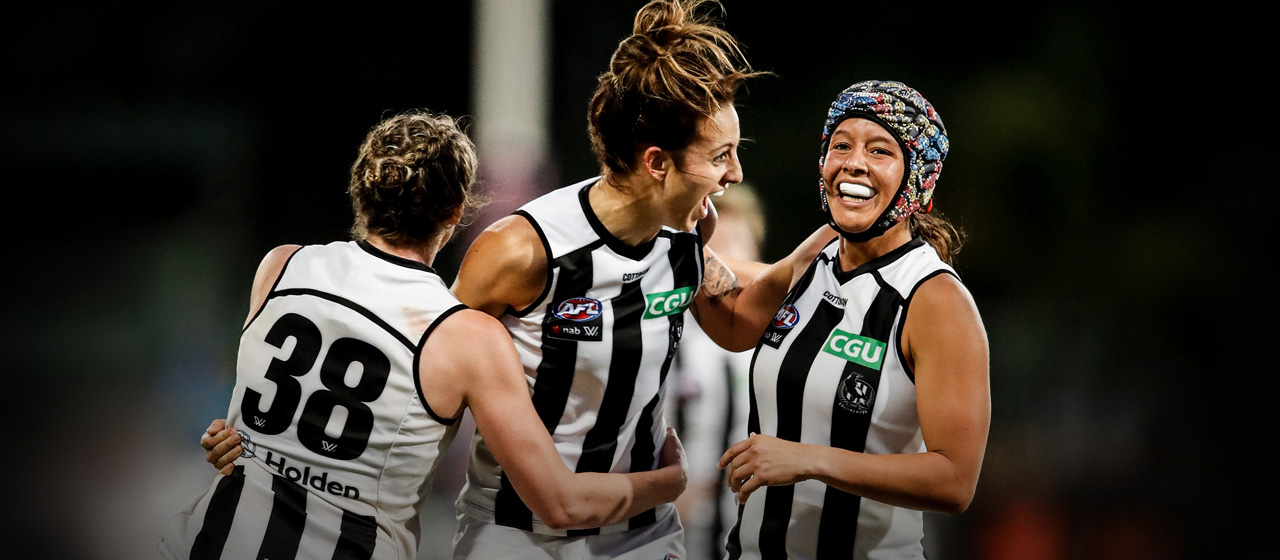
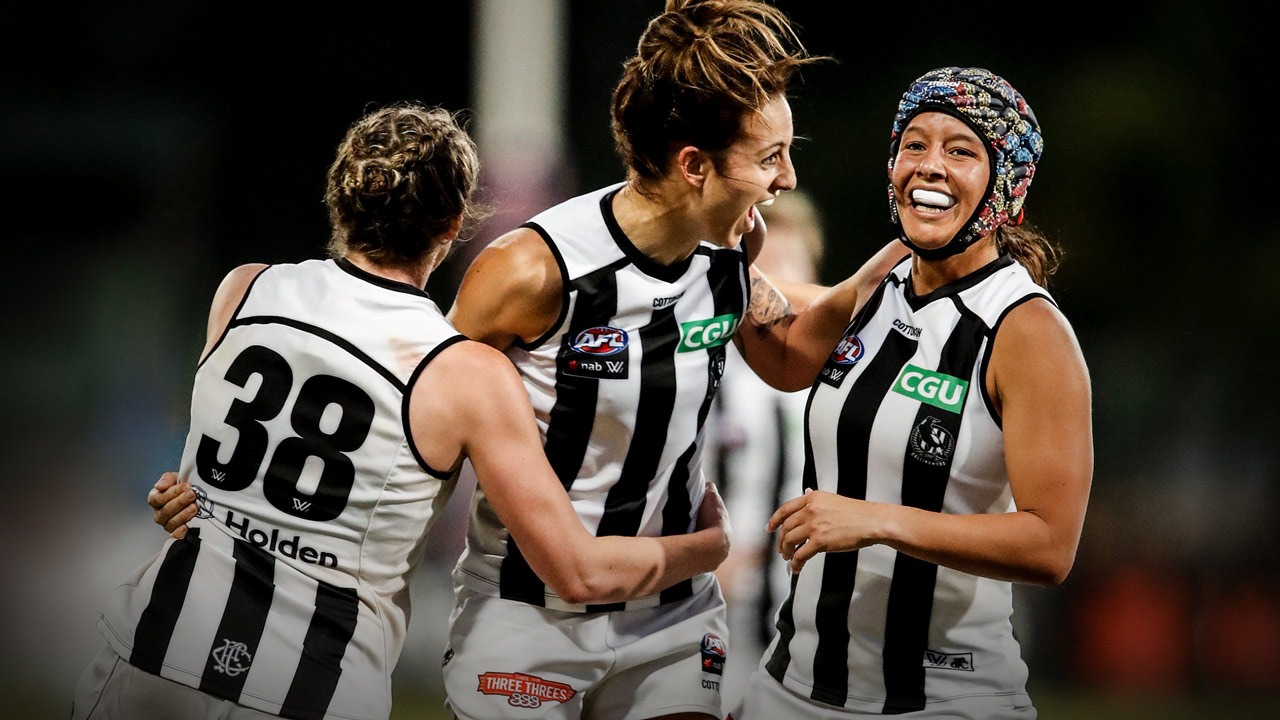
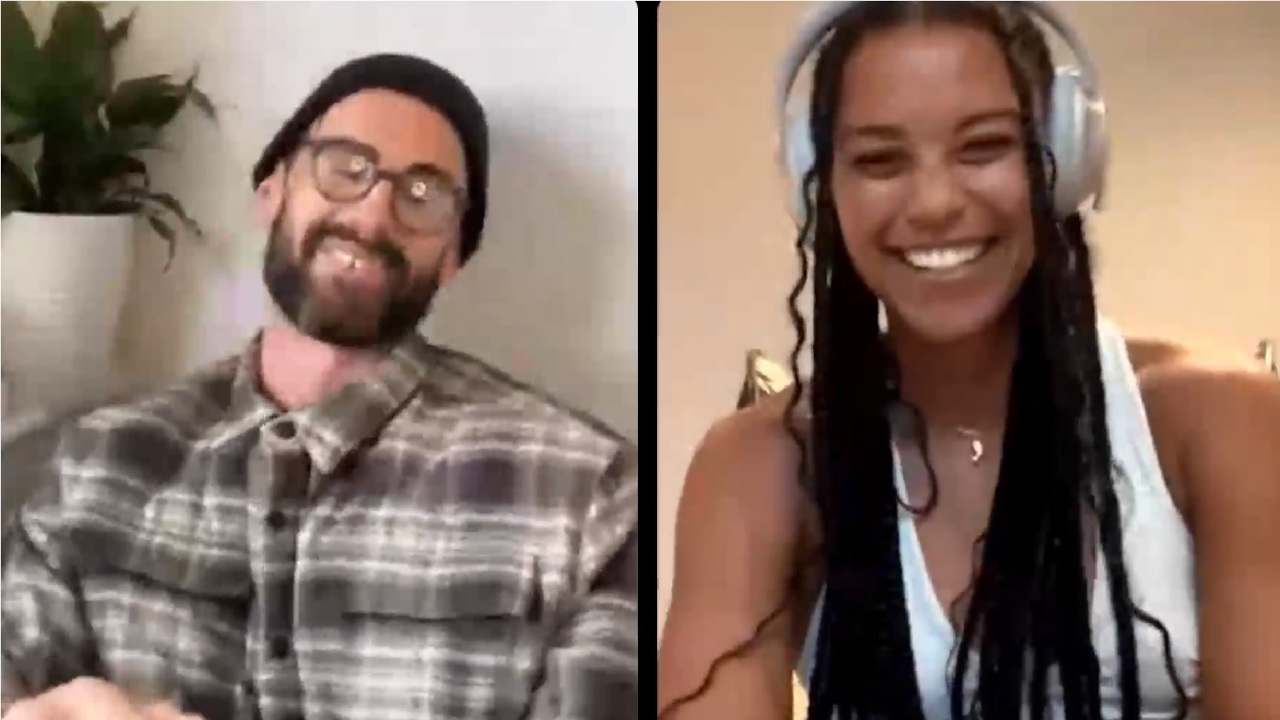
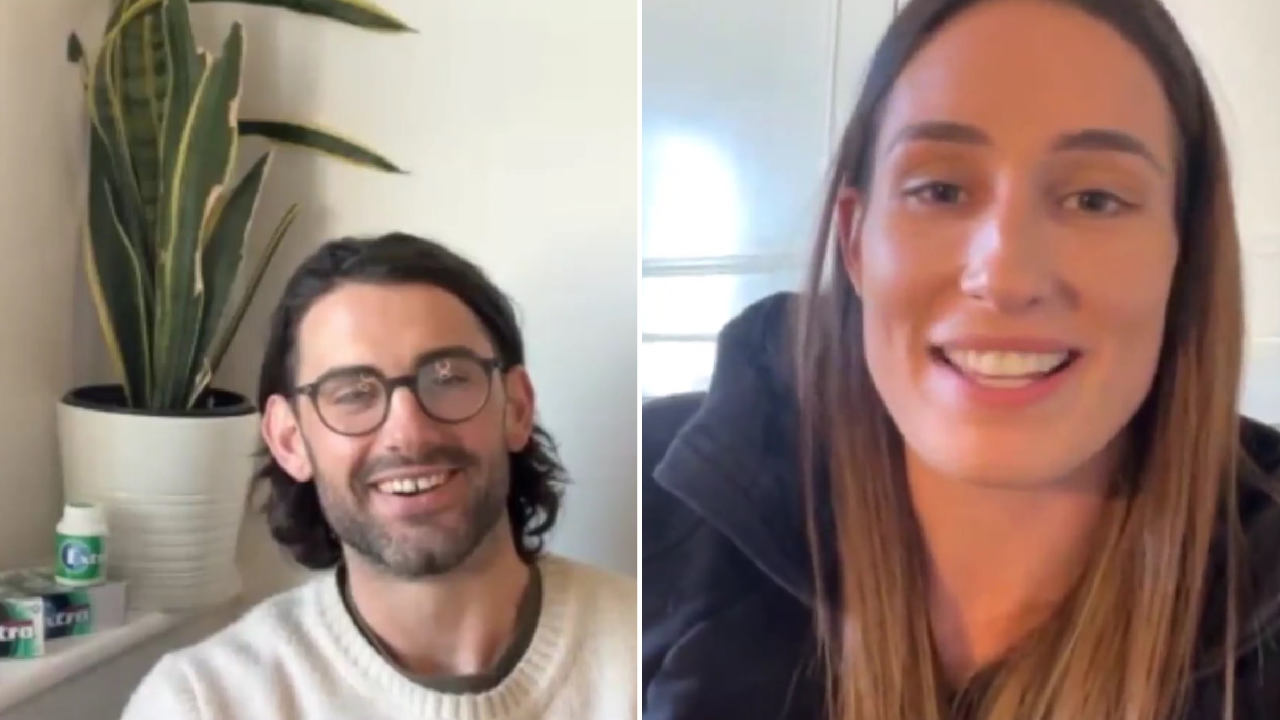
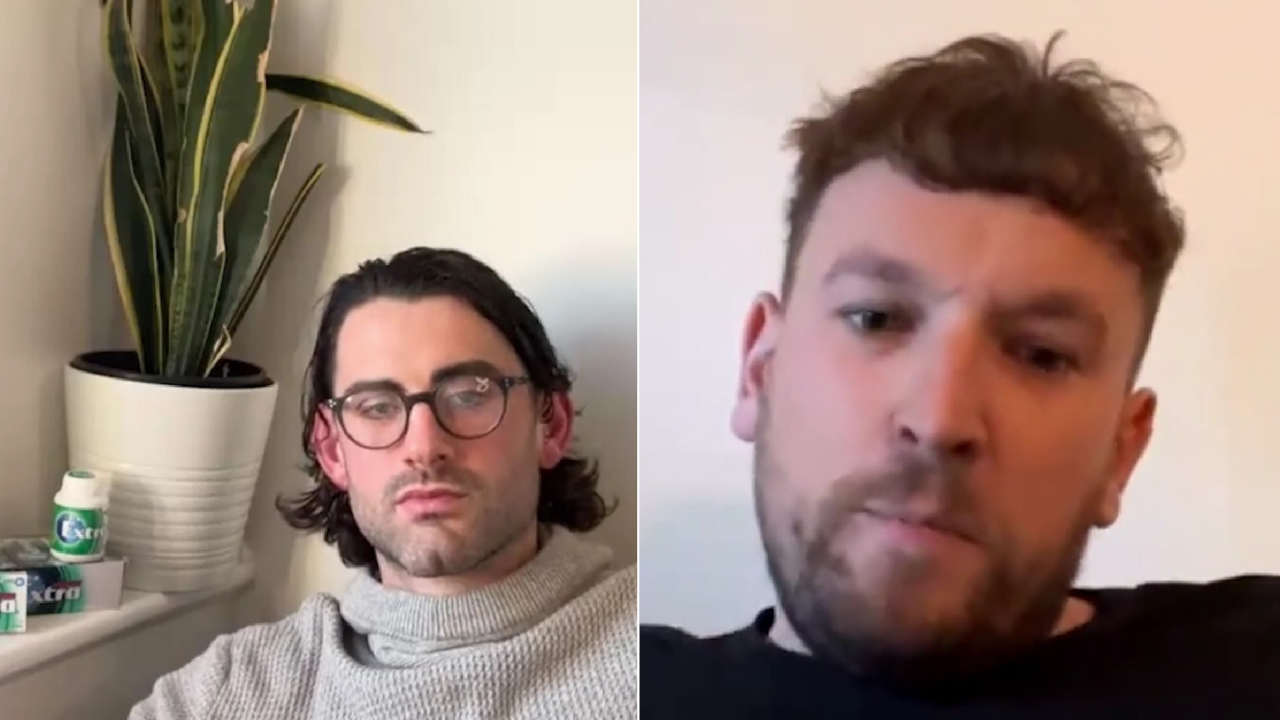

 Load More
Load More